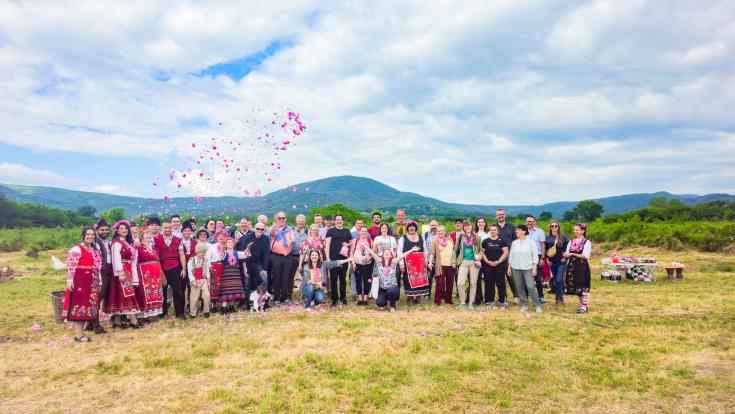Bulgarian flavor stole the show on the 3rd SMEOrigin meeting
Samardala, yoghurt and Bulgarian roses fascinated the participants during the 3rd SMEOrigin interregional meeting in the region of Stara Zagora
Stara Zagora, Bulgaria – The Stara Zagora Regional Economic Development Agency (SZ REDA) successfully hosted the 3rd Interregional Meeting of the European project "SMEs & European Original Geographical Information Indications - SMEOrigin" on May 29-30, 2024. The event brought together more than 30 partners from across Europe and local stakeholders to exchange knowledge and best practices, focusing on innovation in the food industry and the significance of geographical indications. What impressed guests the most were the innovative research activities on functional foods and precision farming (dairy products and aquaponics) and the colourful traditions related to rose and rose oil production.
Day 1: Innovation and digitalization of food production
The event commenced with a conference and workshop at Trakia University, Southeastern Bulgaria's largest educational institution and a renowned research university.
Prof. Nedelina Kostadinova, Secretary General of Trakia University, presented the university's advancements in food research, digitalization in agriculture, and sustainable food production.
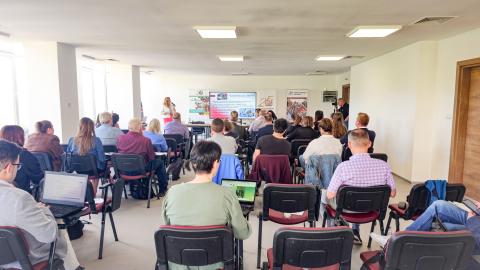
Prof. Nikolina Naydenova introduced innovative research in functional foods, engaging participants in a sensory evaluation experiment with a new product based on Bulgarian yogurt and aloe vera.
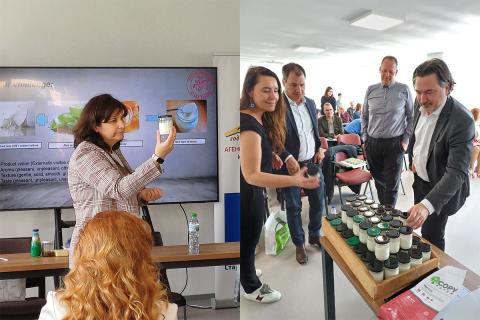
The day marked the launch of the Policy Improvement and Transfer phase. A cornerstone document was presented - the Strategic Toolkit, developed to serve as a compass for the policy transfer phase. The document was prepared under the supervision of the University of Patras and presented by Constantinos Antonopoulos. Partners and stakeholders took part in a workshop dedicated to developing a methodology for good practice transfer across regions.
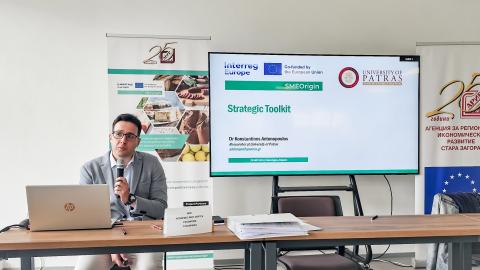
The afternoon included a study visit to the Aquaponics Science Center, where participants witnessed sustainable food production methods combining fish farming and plant cultivation in a precisely controlled environment.
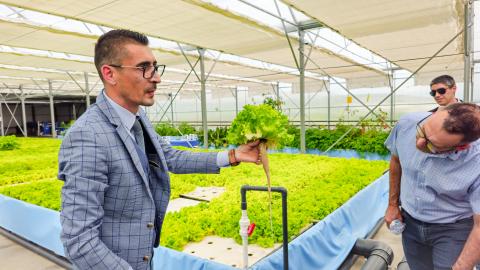
The day concluded with a city tour of Stara Zagora and a dinner showcasing local PGI and PDO products, including the region's renowned green herb, Samardala.
Day 2: Experiencing the magic of Bulgarian Rose, Kazanlak
On the second day of the event participants travelled to Kazanlak to take part in the vibrant Festival of Rose, experiencing the traditional Ritual Rose Picking near Rozovo village. Partners witnessed the labor-intensive process of rose harvesting, a practice that is still entirely manual.
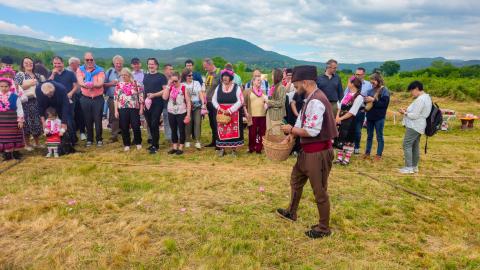
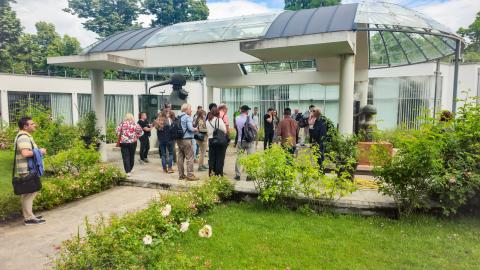
The group then convened for a conference at the Museum of Rose, where several partners and stakeholders shared good practices. Notable presentations included the Municipality of Kazanlak's Festival of Rose, Edoardo Miroglio Wine Cellar's sustainable wine production, Finland's D.O. Saimaa quality label, and the South Savo Food Cluster's regional food sector development.
After a working lunch featuring dishes infused with Bulgarian rose, participants explored the Street of Crafts, a bustling market of local artisans and producers.
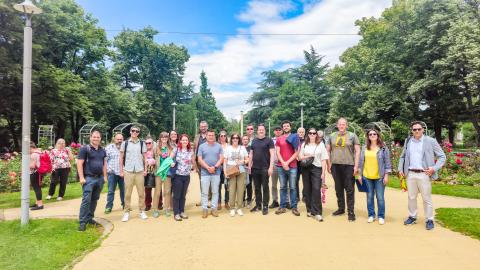
The event concluded with a visit and wine tasting at BetterHalf Garage Wines in Zmeiovo, offering a sampling of unique local wines.
Next Steps: Good practice transfer
The SMEOrigin partners will continue to work on developing a methodology for good practice transfer, fostering further collaboration and innovation in the food industry. The project's next phase will involve deeper analysis and implementation of these practices across participating regions.
A Platform for Exchange of experience between stakeholders was developed to foster collaboration between policymakers, businesses, research institutes and sectoral organization in the field of food production.
About SMEOrigin Project:
SMEOrigin aims to improve regional development policies and funding programmes to increase the competitiveness of agri-food SMEs specialised in geographical indication (GI) products in the involved regions. The project will focus on strengthening their value chain, supporting and promoting their digital transformation, reviewing and improving product labelling, while considering sustainable development. Through improved policies, these SMEs will be more able to enhance the reputation of their goods, build consumer confidence, communicate their commitment to social responsibility, and support regional economic development.
For news and updates, follow the social media accounts of SMEOrigin:
Facebook: https://www.facebook.com/SMEOrigin
Instagram: https://www.instagram.com/smeorigin/
LinkedIn: https://www.linkedin.com/company/smeorigin/
Twitter/X: https://twitter.com/SMEOrigin
For media inquiries and further information, please contact:
Maria Andreeva, SMEOrigin Communication Manager

